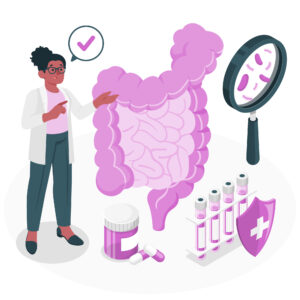What Happens During Heartburn: The Science Behind It
Most of us know about the symptoms of heartburn but how about what causes the condition?
What are the symptoms of heartburn?
Extremely common, affecting up to one in four UK adults, heartburn is something which can be an occasional nuisance for some but a frequent, sometimes daily occurrence, known as GORD (gastro-oesophageal reflux disease).1/2
For others it’s a burning sensation in the chest and throat, a recurring cough or hiccups, bloating, feeling sick, bad breath and even a hoarse voice – these are all the main symptoms of heartburn and acid reflux.1
But what are the causes of heartburn?
What are the causes of heartburn?
Well, they’re usually lifestyle related such as:1/2
- Certain food and drink including alcohol, tomatoes, citrus fruits, coffee, chocolate and spicy or fatty foods.
- Smoking
- Being overweight
- Pregnancy
- Stress and anxiety
- Bending over or stooping
- It can also be caused by some medicines such as anti-inflammatory painkillers including ibuprofen or made worse by a hiatus hernia when part of the stomach moves up into the chest.1
For some there’s no obvious lifestyle factor or cause.2
Whatever the reason it can be unpleasant, uncomfortable and, particularly for frequent sufferers, distressing and upsetting, hampering day-to-day life.
While it may take some time to get to the cause or causes of your heartburn it can help to know more about the condition.
So, let’s start at the very beginning of the digestive journey and take an exploratory trip down the hatch to find out why and how is occurs…
The science bit: what actually happens during heartburn?
Whatever you eat or drink passes from the mouth down the oesophagus, or gullet, and into the stomach.2
There’s a muscular ring (the lower oesophageal sphincter) connecting the two to prevent the stomach contents from entering the gullet but when this one-way system fails, for whatever reason, they end up travelling back up.2
To break down food and drink the stomach produces acid to aid the digestion process.2
The acid is produced by the proton pump within the cells in the stomach.3
While the stomach can resist acid, the gullet can’t so if the stomach contents reflux in sufficient amounts it can cause the pain of heartburn.2
If the lining of the gullet becomes inflamed this is known as oesophagitis and if it’s severely inflamed enough, ulcers can sometimes appear.2

Heartburn common queries
Heartburn from alcohol
You may notice your symptoms are worse after drinking alcohol, eating rich food and citrus fruits, even hot drinks.2
Heartburn during pregnancy
Heartburn can develop in the later stages of pregnancy due to pressure on the stomach from the growing baby.2
What does heartburn feel like?
Usually felt within the chest, occasionally the pain of heartburn can feel like it’s in the back and many people describe the feeling as something ‘repeating’ on them as the stomach contents travel up the gullet, or even into the throat and mouth.2
Why can heartburn symptoms be worse at night?
Symptoms are often more common at night as when you’re lying down it’s easier for the reflux to travel in the wrong direction.
Heartburn & hiatus hernia
Heartburn can also be more likely in people with a hiatus hernia, when part of the stomach slides up into the chest through a hole called the hiatus.2
It’s reportedly rare for the hernia itself to be the cause of the symptoms but it’s likely to increase the chances of reflux and tends to be more common in men.2

Omeprazole – the science behind proton pump inhibitors (PPIs)
Omeprazole, the active ingredient in Pyrocalm Control 20mg Gastro-Resistant Tablets*, belongings to a group of medicines called Proton pump Inhibitors (PPIs) and is a widely used treatment for indigestion, heartburn and acid reflux.4
How do proton pump inhibitors work?
PPIs work to suppress acid production in the stomach by interrupting part of the acid production process.4
This helps to reduce the pain or discomfort in your chest or stomach and so allows the body to reduce any inflammation5 caused by stomach acid leaking into the gullet.
Can Omeprazole be used during pregnancy?
Omeprazole can be used during pregnancy and while breastfeeding and it may be used if lifestyle changes, such as eating smaller meals more often and avoiding fatty and spicy foods, aren’t working.6
Omeprazole, over the counter medicines & GP advice
If heartburn becomes more than an annoying discomfort, particularly if lifestyle changes and over-the-counter medicines aren’t helping – and you’ve taken acid suppressant medication such as omeprazole for four weeks or more – you should see your GP.
That’s also the case if you have symptoms most days for three weeks or more.
*Essential Information: Pyrocalm Control® 20mg Gastro-Resistant Tablets. For the short-term treatment of reflux symptoms in adults. Contains 20mg Omeprazole. Always read the label.
It can take two to three days to achieve symptom improvement. Sufferers can use antacids for their symptoms while waiting for the product to have full effect.
Medicines can affect the unborn baby. Always talk to a doctor or pharmacist before taking any medicine in pregnancy.
References:
1 https://www.nhs.uk/conditions/heartburn-and-acid-reflux/
2 https://gutscharity.org.uk/wp-content/uploads/2018/11/Guts-UK-Heartburn-and-Reflux-Leaflet.pdf
3 https://bnf.nice.org.uk/drug-class/proton-pump-inhibitors-2.html
4 https://www.bhf.org.uk/informationsupport/heart-matters-magazine/medical/drug-cabinet/proton-pump-inhibitors
5 https://www.oxfordshireccg.nhs.uk/professional-resources/documents/clinical-guidelines/gastroenterology/proton-pump-inhibitors-patient-information-leaflet.pdf
6 https://www.nhs.uk/medicines/omeprazole/




